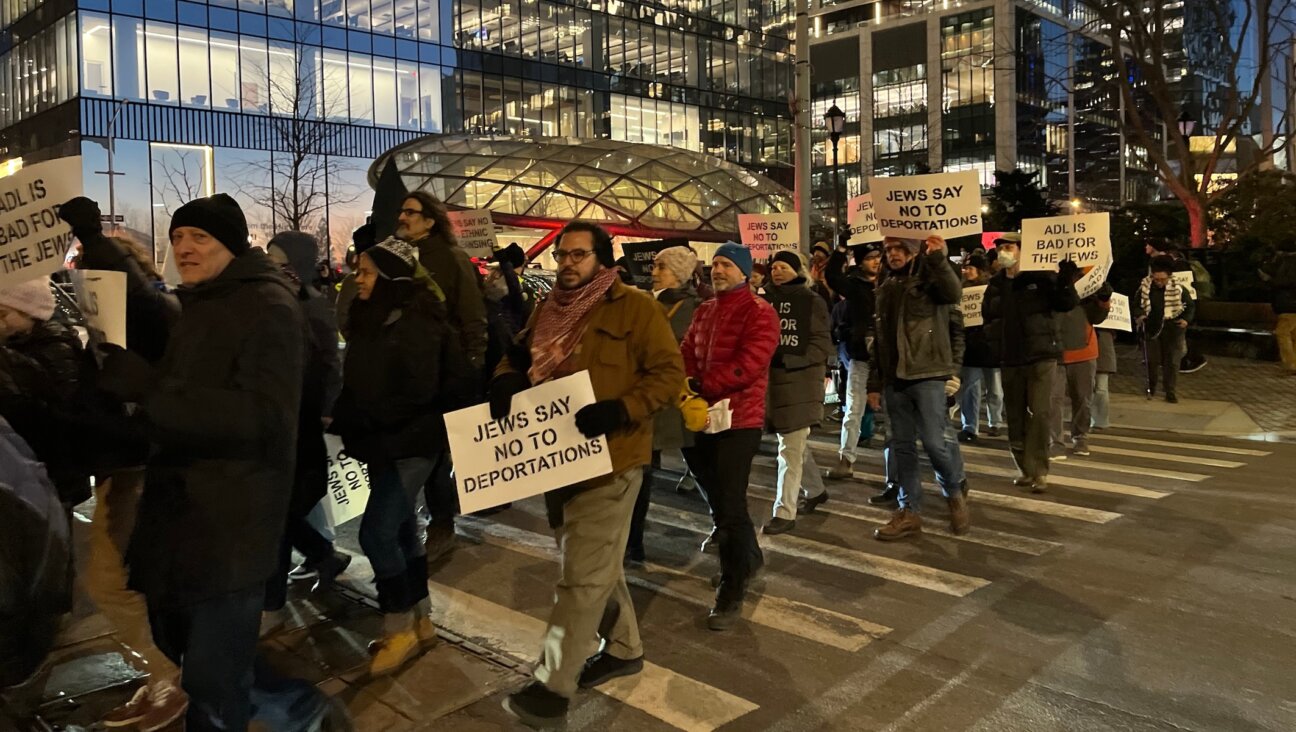Swastikas at Stanford University: Second Time in a Month

Image by wikimedia commons
(JTA) — Swastikas were discovered last weekend at Stanford University, less than a month after another rash of swastikas and anti-Semitic graffiti was found around campus.
“Several” swastikas were found on the buildings of the university graduate housing, known as Escondido Village, the Stanford Daily reported.
The Stanford University Department of Public Safety has been working on the case in cooperation with the Palo Alto police but has not yet named any suspects, the student daily newspaper reported.
At the end of December during the university’s winter break, swastikas with inverted arms were drawn on campus buildings and signs and on buildings in Palo Alto, where the university is located, accompanied by phrases such as “No Jews allowed,” the Mercury News reported earlier this month.
“The symbols are not technically swastikas,” Stanford Police Chief Laura Wilson said in a statement issued in early January. “However, due to the similarity of the symbols to a swastika and the perception by witnesses that the symbols were intended to represent an object commonly associated with hate-based violence, the police are investigating the vandalism as a possible hate crime.”
Last week, printers in offices around the Stanford campus produced anti-Semitic fliers in a suspected hacking attempt. It is not believed to be related to the swastika incidents.
As part of comments on “immigration issues” at a January 26 Faculty Senate meeting,
Stanford President Marc Tessier-Lavigne addressed the issue of the swastikas.
“I can say that in addition to our Jewish community, we know that other communities within Stanford are feeling very concerned and vulnerable,” Tessier-Lavigne said.
“This is a time where we need to again reaffirm our values. We value free expression, but acts of hate are unacceptable here. All members of our community belong here at Stanford, and we are here to support them,” he said, adding: “We will continue to monitor this very closely, of course.”
He also said that the university supports its undocumented students and students from countries on the entry ban list, and that the university is “looking at who in our community may be impacted by this, in terms of their ability to return to the U.S. if they leave, and reaching out to members of our community who may be traveling in affected countries or considering travel there. So that’s in progress.
The Forward is free to read, but it isn’t free to produce

I hope you appreciated this article. Before you go, I’d like to ask you to please support the Forward.
Now more than ever, American Jews need independent news they can trust, with reporting driven by truth, not ideology. We serve you, not any ideological agenda.
At a time when other newsrooms are closing or cutting back, the Forward has removed its paywall and invested additional resources to report on the ground from Israel and around the U.S. on the impact of the war, rising antisemitism and polarized discourse.
This is a great time to support independent Jewish journalism you rely on. Make a gift today!
— Rachel Fishman Feddersen, Publisher and CEO
Support our mission to tell the Jewish story fully and fairly.
Most Popular
- 1

Opinion The dangerous Nazi legend behind Trump’s ruthless grab for power
- 2

Opinion A Holocaust perpetrator was just celebrated on US soil. I think I know why no one objected.
- 3

Culture Did this Jewish literary titan have the right idea about Harry Potter and J.K. Rowling after all?
- 4

Opinion I first met Netanyahu in 1988. Here’s how he became the most destructive leader in Israel’s history.
In Case You Missed It
-

Opinion Gaza and Trump have left the Jewish community at war with itself — and me with a bad case of alienation
-

Fast Forward Trump administration restores student visas, but impact on pro-Palestinian protesters is unclear
-

Fast Forward Deborah Lipstadt says Trump’s campus antisemitism crackdown has ‘gone way too far’
-

Fast Forward 5 Jewish senators accuse Trump of using antisemitism as ‘guise’ to attack universities
-
Shop the Forward Store
100% of profits support our journalism
Republish This Story
Please read before republishing
We’re happy to make this story available to republish for free, unless it originated with JTA, Haaretz or another publication (as indicated on the article) and as long as you follow our guidelines.
You must comply with the following:
- Credit the Forward
- Retain our pixel
- Preserve our canonical link in Google search
- Add a noindex tag in Google search
See our full guidelines for more information, and this guide for detail about canonical URLs.
To republish, copy the HTML by clicking on the yellow button to the right; it includes our tracking pixel, all paragraph styles and hyperlinks, the author byline and credit to the Forward. It does not include images; to avoid copyright violations, you must add them manually, following our guidelines. Please email us at [email protected], subject line “republish,” with any questions or to let us know what stories you’re picking up.












